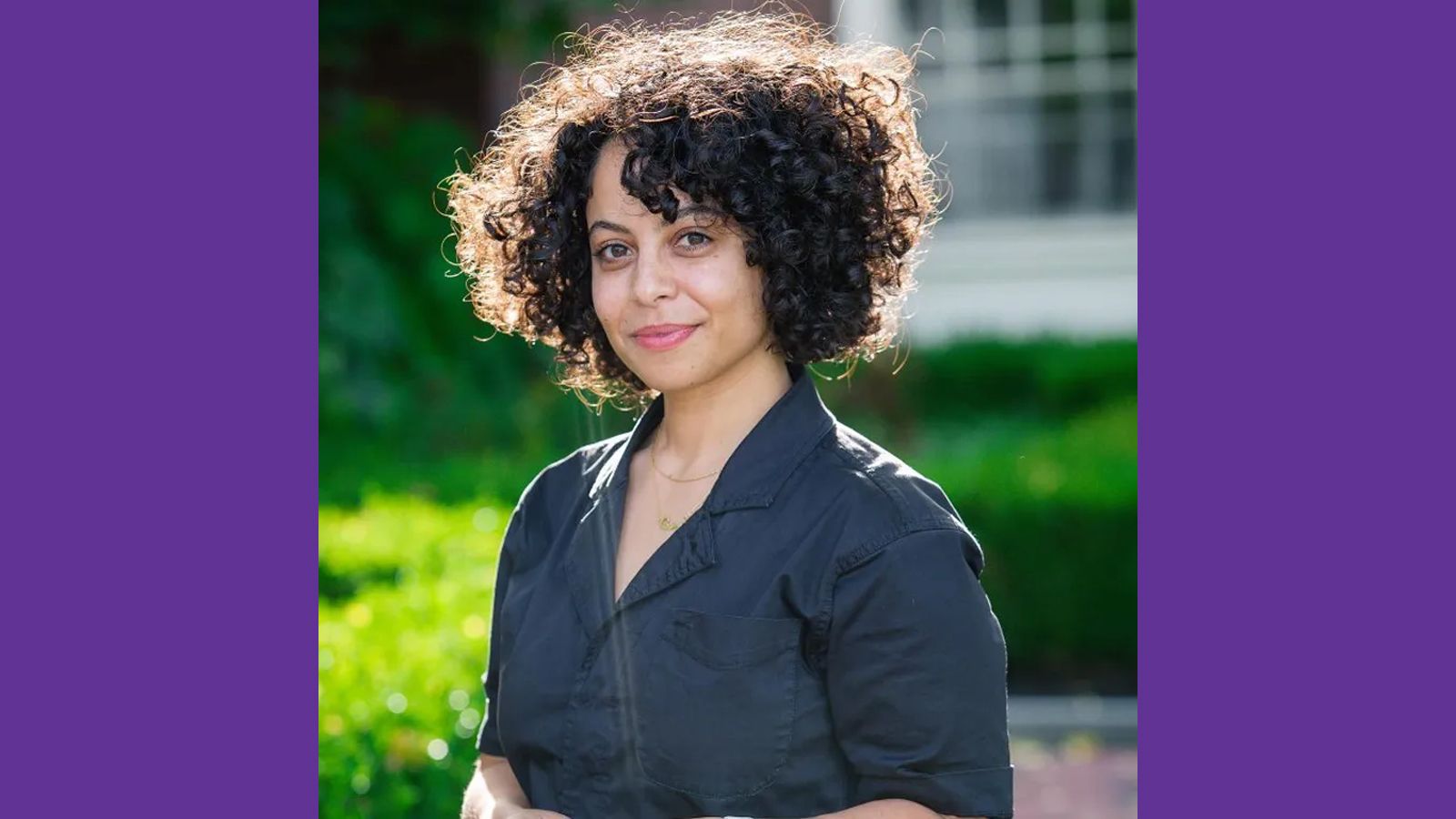She chronicled the travails of Syrian refugees in an award-winning book, and she’s hard at work on another about the human costs of borders.
Now Hunter Associate Sociology Professor Heba Gowayed has won an Andrew Carnegie Fellowship, one of only 26 fellows chosen by a jury out of more than 300 nominations nationally. Fellows each receive a stipend of $200,000 — the most generous of its kind for research in the humanities and social sciences — enabling them to devote significant time to research and writing.
“I am deeply moved that I was nominated for this award by the Hunter leadership, and that I received it for work that centers the humanity of people living in the shadows of borders at a time of exceptional cruelty,” Gowayed said. “In an atmosphere where critical work is being heavily censored and defunded, this support enables this work that I hold deeply meaningful and that I am driven to share with others.”
Gowayed’s next book, The Cost of Borders, will argue that territorial demarcations between countries are often the sites of official discrimination and deadly interactions.
The award shows Hunter’s reach as an anchor institution committed to high-impact scholarship on pressing policy questions.
“Heba exemplifies in her work how to amplify the voices of communities like ours, especially those who navigate borders,” said Hunter College President Nancy Cantor. “She addresses political polarization through the lens of migration and the current political divides over borders, centering the humanity of those who cross these borders in search of refuge, reimagining our institutions as forces of cohesion in our society. One can hardly imagine a scholar better positioned to help advance the aims of the Carnegie Fellowship to ‘help Americans understand how and why our society has become so polarized and what can be done to strengthen social cohesion.’”
The fellowship is only the latest award for Gowayed, who also holds an appointment with the CUNY Graduate Center. In February, she and Sociology Department Chair Margaret Chin won the Eastern Sociological Society Public Sociology Award, which recognizes scholars for research that meaningfully affects communities.
Last year, her 2022 book, Refuge: How the State Shapes Human Potential, which follows the lives of displaced Syrians who sought refuge in the United States, Canada, and Germany, earned the society’s Mirra Komarovsky Book Award and the Oliver Cromwell Cox Award from the Racial and Ethnic Minorities section of the American Sociological Association.
The 2025 class marks the second year the Andrew Carnegie Fellows Program has focused its awards on political polarization. Carnegie will commit up to $18 million to the effort. Projects include analyzing the political divides between men and women; finding common ground among Americans on healthcare; and understanding how partisan media, consultants, and tabloid entertainment are driving polarization for short-term profits, among other topics.
About the Andrew Carnegie Fellowship Program
Founded in 2015, the Andrew Carnegie Fellows Program provides the most generous stipend of its kind for research in the humanities and social sciences. To date, the Corporation has named more than 300 fellows, representing a philanthropic investment of more than $59 million. The award is for a period of up to two years and the anticipated result is generally a book or major study. Congressional testimony by past fellows has addressed topics such as social media and privacy protections, transnational crime, governmental responses to pandemics, and college affordability. Fellows have received honors including a Nobel Prize and a National Book Award.


